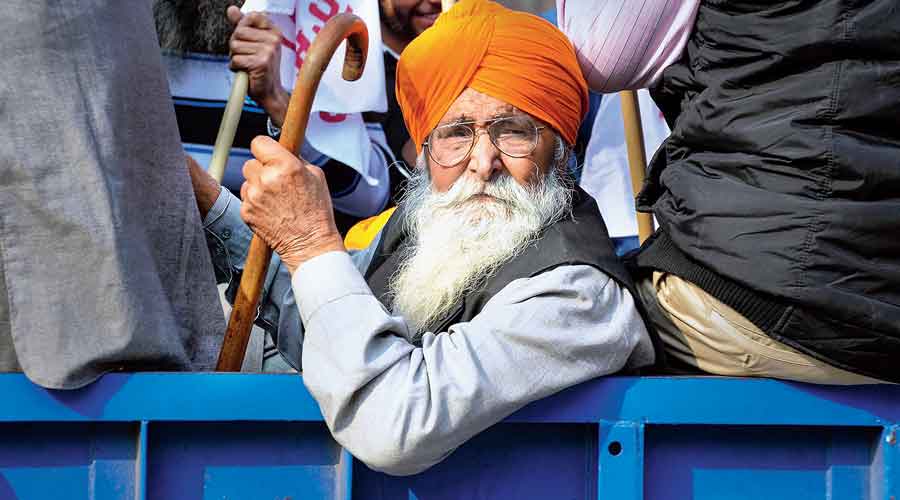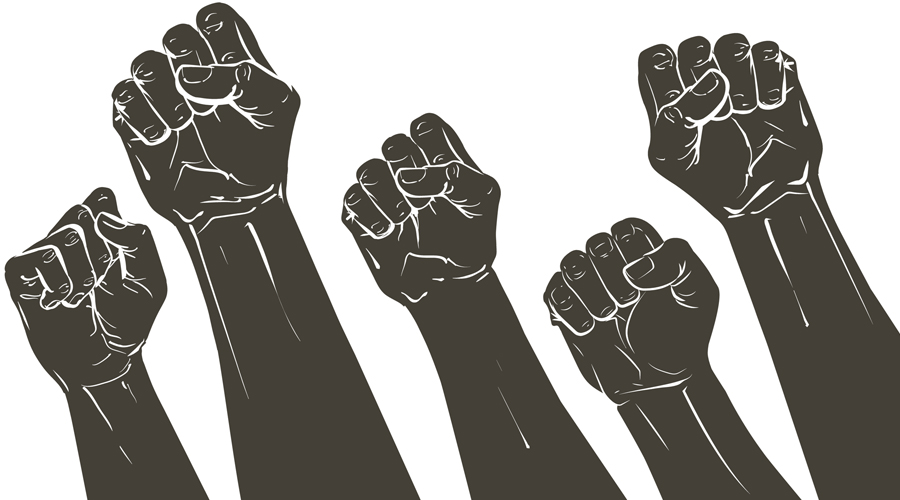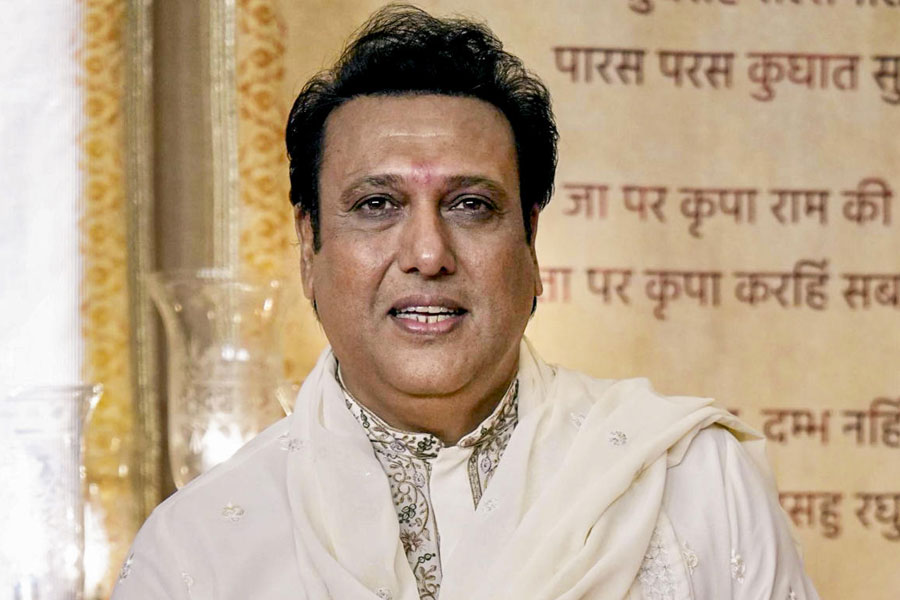The Samyukta Kisan Morcha, which spearheaded the yearlong farmers’ movement, on Monday said it would have no option but to resume the agitation as the Narendra Modi government “continues to renege on the promises made to protesting farmers” on December 9.
This ultimatum came on a day President Ram Nath Kovind addressed a joint sitting of both Houses of Parliament and the government unveiled the Economic Survey. Neither the President’s speech nor the Economic Survey mentioned the farmers’ key demand — a law guaranteeing minimum support prices (MSPs) for their crops.
The “Government of India continues with its falsehoods related to the current MSP (announcement) regime, and the cost concept being used for announcing such MSPs with the Economic Survey report 2021-22”, the Morcha said.
“The cost concept being used continues to be A2 + Family Labour, ignoring C2 cost of production, denying farmers their true entitlement,” it added. A2 covers costs incurred by farmers on deeds, fertilisers, pesticides and hired labour while C2 refers to a more comprehensive range, including the imputed costs of capital, rent on the land and interest on owned land as recommended by the National Commission for Farmers under the chairmanship of M.S. Swaminathan.
“It is also a false claim that crop diversification has happened with the empty promises of meagre MSPs being declared — however, farmers do know that such a diversification is indeed possible if MSP is legally guaranteed as an entitlement for all crops including oilseeds, millets and pulses. That is one of the key reasons that SKM also demands a legally guaranteed MSP,” the Morcha said.
The Economic Survey does not say that crop diversification has happened but argues that price policy is being used for nearly a decade to encourage farmers to diversify.
It says the Crops Diversification Programme (CDP) is being implemented in the original Green Revolution states — Punjab, Haryana and western Uttar Pradesh — as a sub-scheme of the Rashtriya Krishi Vikas Yojana since 2013-14 to shift the area under paddy cultivation towards less-water-requiring crops such as oilseeds, pulses, coarse cereals, nutri-cereals and cotton.
The CDP has also since 2015-16 been focusing on shifting areas under tobacco farming to alternative crops or cropping systems in states such as Andhra Pradesh, Bihar, Gujarat, Karnataka, Maharashtra, Odisha, Tamil Nadu, Telangana, Uttar Pradesh and Bengal.
Earlier in the day, the President’s address sought to dispel the Modi government’s “anti-farmer" image by saying “my government is working continuously to empower the farmers and the rural economy of the country”, and dwelling on the “record procurement to match the record production” during the pandemic.
On the crucial issue of pricing, all Kovind referred to was the opening of new avenues for farmers to market their products, specifically the Kisan Rail Seva that had ferried six lakh tonnes of agricultural produce to different parts of the country.
This, he added, was “an example of how new avenues can be created from the existing resources if the thinking is innovative”.
Ahead of Kovind’s speech, the Morcha had directly petitioned the President to remind the Modi government of the assurances given to the protesting farmers in the agriculture ministry’s December 9 communiqué, based on which the farmer leaders had suspended the agitation.
“The regime should stop testing the patience of the farmer. You should remind the Union government of its written assurances to the farmers and get them fulfilled at the earliest. If the government reneges on its written assurance, the farmers would be left with no option but to resume their agitation,” the Morcha said.
According to the Morcha, the government has not delivered on any of its promises: the withdrawal of cases against the farmer protesters, compensation to the families of farmers who died during the agitation, or the formation of a committee on MSP — an announcement made by the Prime Minister himself.
“Not only this, ever since the Morcha was suspended, the Union government is moving ahead with its anti-farmer agenda. The negotiations on Free Trade Agreement with Australia threaten the existence of the dairy farmers,” the Morcha said.
“Amendments to the Biological Diversity Act 2002 (are) an invitation to bio-piracy of the farmers’ wealth. GM food is being allowed… backdoor entry by making new regulations governing the FSSAI (Food Safety and Standards Authority of India). Efforts are being made to cut down on the purchase of the crop with the new quality standard brought in by the FCI (Food Corporation of India).”
Given the stalemate, the Morcha had already decided to go ahead with its “Mission Uttar Pradesh” campaign against the BJP in the upcoming Assembly elections.
The modalities are still being worked out but the strategy will be to campaign against the BJP without pledging support for any one party, marking a repeat of the policy adopted during last year’s Assembly elections.












